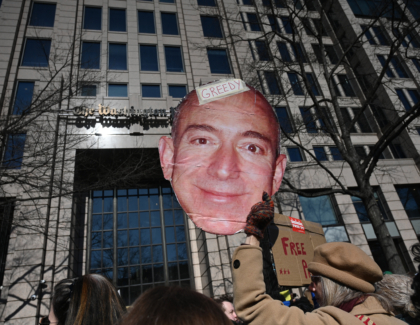Sign up for the daily CJR newsletter.
PolitiFact, the fact-checking Web site created by the St. Petersburg Times—whose dispute with Arianna Huffington we noted last week—has been making more news lately, establishing partnerships with local publications in Texas, Georgia, Florida, and, as of June 28, Rhode Island.
As the operation branches out, the early acclaim that greeted the site has given over to some criticism, as NPR’s David Folkenflik reported recently in a story on the franchise’s expansion. But a closer look at the complaints catalogued by Folkenflik suggests that—as in the tiff with Huffington—PolitiFact has the better of the argument.
The NPR piece homed in on complaints from pols and operatives that the site can be pedantic to a fault, focusing on colorful or exaggerated language rather than the merits of the underlying argument. And we can’t argue with a Democratic consultant who told Folkenflik that a PolitiFact post correcting a statement by Texas Democratic Chairman Boyd Richie—he had charged that Governor Rick Perry was “living like the French King Louis XIV in a state-leased mansion”—did little to serve Texans still deciding which box to tick come November. That is, little beyond the entertainment value of the verdict:
Summing up: Louis XIV had it all for his age. He gamboled, he hunted, he warred; lived large.
Though Perry’s hardly giving the king a run for his money, he has had a bonanza of a run as well—healthy wife, children, multiple elections with nary a loss. He’s often said he has the world’s best job. We’ll speculate he’s good with his rental quarters.
But ça suffit, as they say in France. The Democrats said Richie was joshing. We’ll grant they’re kidders. We rate his statement Pantalon en Feu.
Obviously, Texas-based PolitiFact reporter Gardner Selby delivered that verdict with tongue lodged firmly in cheek (the same condition in which we assume the reference in the original statement was made). But by crying j’accuse at that one correction (and a select few others), PolitiFact’s dissers are guilty of their own charges: homing in on a few easy targets and suggesting they represent the totality of a fuller argument, or in the case of the Web site, a fuller mission.
For PolitiFact, that mission—to help find truth in politics and expose the lies, to hold politicians and pundits accountable for the statements they use to influence the voting and viewing public—is a noble one, and one which we’ve generally supported (while at times lamenting that other news outlets have relied on the fact-checker in lieu of doing the work themselves). And even a cursory glance at the site shows the weight of PolitiFact’s reporting is given to heavier issues than flip references to headless monarchs.
Just today, the site issues verdicts on MSNBC’s Keith Olberman’s claim that “subsidies for oil and gas companies make up 88 percent of all federal subsidies” (False) and Sarah Palin’s assertion that America “only ranks 25th worldwide on defense spending as a percentage of GDP” (Barely True). These verdicts, typical of PolitiFact’s output, are nuanced, thoroughly researched examinations of bold statements that aim to sway opinion and shift perspectives. And lest we should be accused of focusing on our own carefully selected isolated incidents to bolster our point, see yourself the kinds of claims examined by PolitiFact nationally, and in Florida, Georgia, Rhode Island, and Texas.
PolitiFact might be pedantic at times, but only by necessity. If our pols and pundits insist on lowering the public discourse to sound bite slings and arrows, we need an aggressive, attentive press to draw conclusions about what should stick and what should bounce.
It’s understandable that pols are crying foul under such close scrutiny. With their constituents armed with a “Truth-o-Meter,” many could be facing their own guillotines come November.
Has America ever needed a media defender more than now? Help us by joining CJR today.






